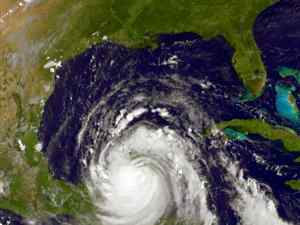Over the next few months, the world will reach a state that it likely hasn’t been in since the Tower of Babel. According to a recent UN report, in 2008 (actually, starting this year) more than half of the world’s population will live in cities. That’s about 3.3 billion people!
It’s safe to say that never before in history have so many people lived in cities. From a Christian perspective, this highlights a challenge that we often forget about. But we need to think about it.
In 1900, only 13% of the world lived in cities, which means there has been a huge leap in 107 years. The UN estimates that the urban population will be 5 billion in 2030 (meaning that 3/5 people will live in cities). In only 10 years the world may have nearly 500 cities of over a million, and in 2020 nine cities (including Mexico City) will have more than 20 million inhabitants.
That means a lot of contrast – take for example Mexico City, where the rich commute in helicopters (the rich here, by the way, are one of the groups least reached by the Gospel), and yet 40% of the population lives below the poverty line. About a million people in the world live in slums – scheduled to double to 2 million by 2030.
People in cities include so-called unreached people groups, but these groups are sometimes more hidden than they would be deep in the jungle. Cultural diversity is one challenge – these people may live close to a church, but that church may not speak their language, or may be so culturally different that it’s not relevant or understandable.
Often Christian groups want to focus on "community outreach", but this doesn’t always work in today’s cities. People are often more connected to cultural, family, or employment related groups and less to a local neighbourhood. These networks may be more important than geography in the growing cities. People in a church group may not be from the immediate area at all.
And we all know that there’s a different mentality in the cities. People have come for different reasons, and they live at a different pace and do different things. It’s easy for people to "disappear" in the cities, or simply keep to their own (narrow minded?) group (narrow minded at times, because you can cluster around your own "kind" very easily and avoid meaningful contact with others).
Cities are facing unique problems, and problems as big as the population. Though Mexico City is still growing rapidly, it’s also facing big problems – homelessness, pollution, and crime are common issues. About 1/3 of the people don’t even have basic sanitation service. But the city is also running low on water, and every time water is used, the city sinks (it was built on a lake). A report by Forbes suggested that Mexico City may be a ghost city by 2100. Part of the challenge is that the city is in two states – an administration nightmare (and another reason why you see drastically different population estimates).
In Mexico’s cities (as in many countries, I’m sure), people are often moving around, disconnected from their roots, and looking for answers – a good and bad situation, as you may imagine. There’s a window of opportunity in Mexico’s cities, and the Lord is working there. But we need what we’ve always needed, only more so – prayer, love, partnerships, creativity, willingness, openness and courage – to reach people in the cities.
It’s a fast changing (and yet really not all that different), technological (though often not), diverse (and yet strangely conforming!) society. And if we want to reach the unreached of the world, the cities can’t be ignored.
More links:






